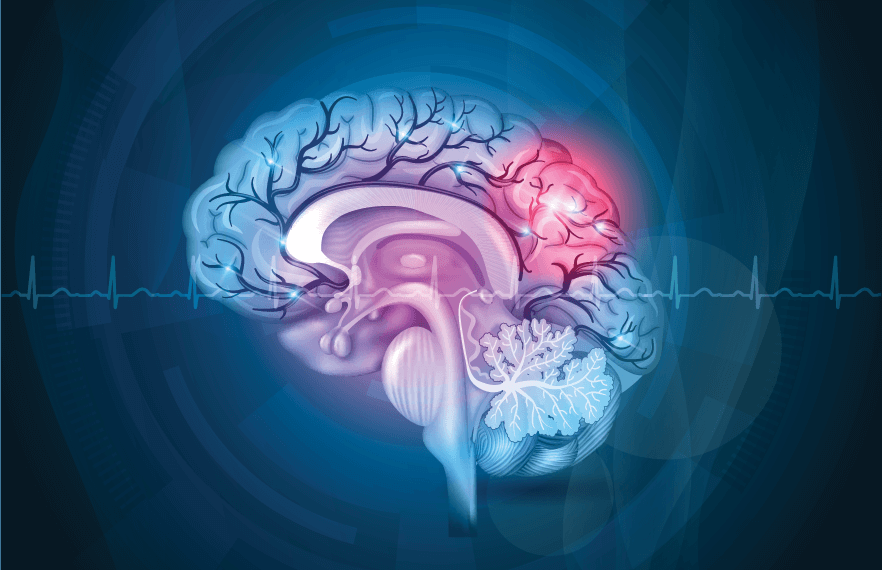Understanding Stroke: An Urgent Call for Awareness
Stroke is a pressing health concern that could lead to nearly 10 million deaths annually by the year 2050. This serious condition has the potential to alter lives significantly, making it crucial to understand its causes, symptoms, and preventive measures. As a neurologist, my goal is to provide you with vital insights into strokes and how to recognize them early.
What is a Stroke?
A stroke occurs when there is a disruption in the blood flow to the brain. This interruption can happen in two main ways:
- Ischemic Stroke: This type accounts for about 87% of all strokes and occurs when a blood vessel supplying blood to the brain becomes blocked, often by a blood clot.
- Hemorrhagic Stroke: This type occurs when a blood vessel in the brain ruptures, leading to bleeding in or around the brain.
Recognizing the signs of a stroke is crucial because time is of the essence. The sooner a stroke is treated, the better the chances of recovery and minimizing lasting damage.
Recognizing the Warning Signs
The warning signs of a stroke can come on suddenly and may include:
- Numbness or Weakness: This often manifests on one side of the body, particularly in the face, arm, or leg.
- Confusion or Trouble Speaking: Abrupt difficulty in speaking or understanding speech can be a significant indicator.
- Vision Problems: A sudden loss of vision in one or both eyes can signal a stroke.
- Difficulty Walking: A sudden loss of balance, coordination, or dizziness is also a red flag.
- Severe Headache: In cases of hemorrhagic strokes, an intense headache with no clear cause can occur.
If you or someone you know experiences these symptoms, it’s imperative to seek medical attention immediately.
The Importance of Urgent Medical Attention
The urgency of addressing a stroke cannot be emphasized enough. Prompt treatment can greatly influence the outcome. For ischemic strokes, treatment often involves administering clot-dissolving medications, such as tissue plasminogen activator (tPA), which can restore blood flow to the brain if given within a specific time frame. For hemorrhagic strokes, medical interventions are focused on controlling the bleeding and reducing pressure in the brain.
Preventing Strokes
While immediate treatment is vital, prevention plays an equally crucial role. Managing risk factors can significantly reduce the likelihood of experiencing a stroke. Some key preventative measures include:
- Control of Chronic Conditions: Proper management of conditions like hypertension, diabetes, and high cholesterol is essential. Regular monitoring and medication adherence can prevent these factors from escalating.
- Healthy Lifestyle Choices: Engaging in regular physical activity, maintaining a balanced diet rich in fruits, vegetables, and whole grains, and avoiding tobacco can contribute to overall cardiovascular health.
- Routine Check-Ups: Regular visits to your healthcare provider can help identify any potential risk factors and allow for timely interventions. Open discussions about your health status and risk factors are invaluable for stroke prevention.
Your Role in Stroke Prevention
As your neurologist, my role involves evaluating your specific risk factors, providing necessary interventions, and guiding you toward effective stroke prevention strategies. It’s important to remain proactive about your health.
Engaging in open communication with your healthcare provider about any concerns you have and being aware of the symptoms of stroke are vital components of preserving your brain health. Your well-being is my top priority, and together, we can work to minimize the risk of strokes and improve your overall quality of life.
Conclusion
Understanding the risks, recognizing the symptoms, and taking preventive measures against strokes can significantly influence your health trajectory. The fight against stroke is not just the responsibility of healthcare providers but also requires the active participation of individuals. By prioritizing your health and being vigilant about the warning signs, you can make a meaningful difference in your well-being.
If you have any concerns about your risk for stroke or would like to learn more about prevention strategies, consult Dr. Kunal Bahrani, the best stroke doctor in Faridabad. Get in touch to schedule an appointment today and take the first step toward better health. Your proactive approach can be a life-saving decision.

